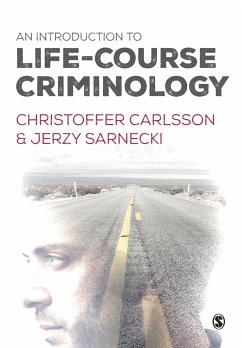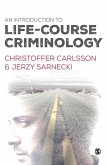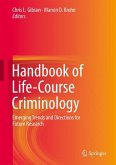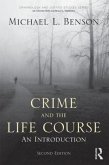Most people engage in crime at some point in their lives, but why does almost everybody stop soon after? And, why do a small number of offenders persist in crime? These two questions constitute the core of the field often known as life-course criminology.
This book provides a comprehensive introduction to life-course criminology. It covers the dominant theories and methodologies in the field and equips you with all you need to succeed in your studies on the subject. The book:
Discusses the methodologies of life-course and longitudinal research Explains and critiques the major theories of life-course criminology Considers the issues of risk, prediction, onset, persistence and desistance of criminal activity Draws on research from studies in Europe, the UK, US and Australia, including the Stockholm Life-Course Project
Written by two leading figures in the field, this is an authoritative text that will guide you through your studies inlife-course criminology, criminal career research, and developmental criminology.
This book provides a comprehensive introduction to life-course criminology. It covers the dominant theories and methodologies in the field and equips you with all you need to succeed in your studies on the subject. The book:
Discusses the methodologies of life-course and longitudinal research Explains and critiques the major theories of life-course criminology Considers the issues of risk, prediction, onset, persistence and desistance of criminal activity Draws on research from studies in Europe, the UK, US and Australia, including the Stockholm Life-Course Project
Written by two leading figures in the field, this is an authoritative text that will guide you through your studies inlife-course criminology, criminal career research, and developmental criminology.
This is an excellent introduction to a topic of central importance for criminologists. It has the merit of being very clearly written, and the authors cover a wide range of materials theories and data; European and American research; quantitative and qualitative studies. Throughout, they provide helpful examples from their work on the Stockholm Life Course Project. Highly recommended.
Sir Anthony Bottoms 20150819
Sir Anthony Bottoms 20150819








